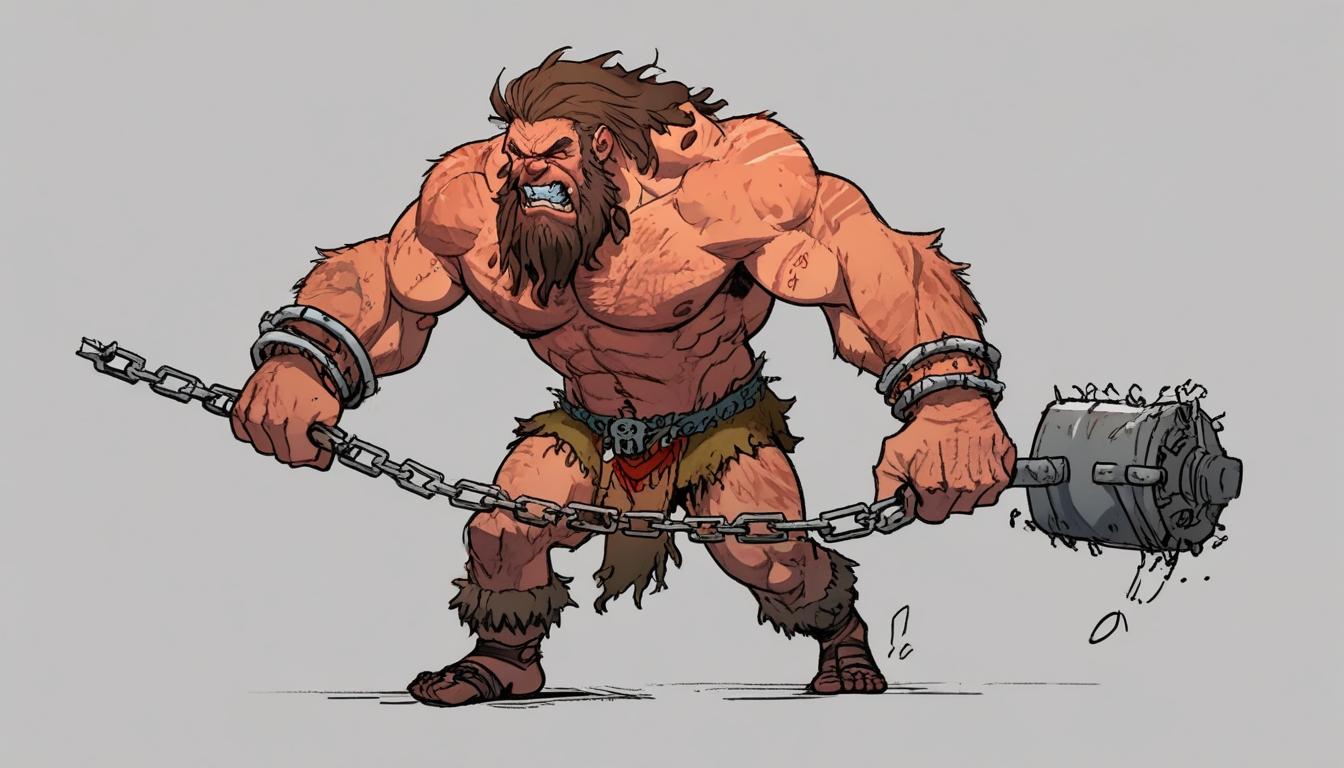For many young men, contemporary masculinity has become an obsession, typified by an exaggerated enthusiasm for protein and a bravado reminiscent of wrestling personas. This cultural manifestation is encapsulated in Netflix’s explosive documentary Untold: The Liver King, centring on Brian Johnson, a fitness influencer who promotes an "ancestral living" ethos as the antidote to modern malaise. Johnson's brand encompasses high-energy workouts, a notable propensity for spirited exclamations involving the word "alpha," and a ludicrous carnivorous diet featuring a plethora of raw animal organs, including an overload of reproductive organs.
The documentary doesn't shy away from the absurdities of Johnson's persona. With opening scenes where he pulls a truck with a chain, an activity that would appear at home in a reality show alongside escapades akin to caveman antics, viewers witness the calculated campaign behind his online presence. His partnership with a marketing agency that crafts attention-grabbing videos speaks volumes about the modern influencer landscape. Though Johnson thrives on promoting primal living, he also offers a range of nutritional supplements, generating an annual income exceeding $100 million. Critics point out that while he presents himself as a figure of authenticity, the reality is laced with contradictions of a man trading in both the primal and the polished.
The documentary dissects the man behind the brand, revealing that Johnson's robust physique, which he attributed to his raw meat diet and podcast appearances, is underpinned by a regimen of steroid injections costing over $11,000 monthly. This revelation not only casts a long shadow on his claims of natural fitness but also opens the floodgates to a broader discussion around the authenticity of fitness influencers who, by promoting unattainable ideals, contribute to issues like body dysmorphia. This insight aligns with expert critiques that highlight the potent dangers of Johnson’s pseudoscientific assertions regarding masculinity and health, laying bare the harmful stereotypes that he perpetuates.
As the film progresses, it expertly intertwines humour and tragedy, allowing audiences to laugh while reflecting on the deeper implications of Johnson's choices. His disregard for traditional parenting is juxtaposed against his own childhood trauma—losing his father at a young age—which manifests in his misguided attempts to instill toughness in his sons. Through scenes where he instructs them in visceral experiences like dissecting a dying bull, the documentary plants viewers in a morally grey zone. Johnson seems oblivious to the emotional and developmental toll his extreme philosophies may wreak on his children, who are often portrayed as unwilling participants in his stringent regime.
The pacing of Untold: The Liver King is brisk, compacting its exploration into a tight 70 minutes that leaves audiences yearning for more insight. Captured under the deft direction of Joe Pearlman, the film oscillates between mirth and harrowing realisation, evoking comparisons to other cultural phenomena like Tiger King and Spinal Tap. Through Johnson's wild assertions and the surreal nature of his lifestyle, the documentary constructs an engaging narrative that draws questions about authenticity, societal values, and the inherent absurdities of influencer culture.
Despite the madness, the documentary concludes with a strangely optimistic Johnson, who seems to have internalised his experiences, vowing that his reign as the "Liver King" has only just begun. He speaks of plans to transform his ranch into a hub for the 'primals' who resonate with his message, boldly declaring ambitions of numerous retreats. This illustration of resilience amid scandal serves as a striking commentary on the influencer phenomenon: if the backlash against his transgressions does not erase his following, it might simply pave the way for the next chapter of a troubling trend in modern masculinity.
As society grapples with the complexities surrounding figures like Brian Johnson, it becomes increasingly vital to scrutinise the narratives we elevate, especially when they intersect with health and personal development. In a world inundated with competing definitions of masculinity, the impact of influencers continues to reshape not only individual identities but also collective perceptions of what it means to be a man in today’s world.
Reference Map
- Paragraphs 1-3: Article 2, Article 3
- Paragraphs 4-5: Article 1, Article 3
- Paragraphs 6-7: Article 5, Article 6
- Paragraph 8: Article 2, Article 7
Source: Noah Wire Services
